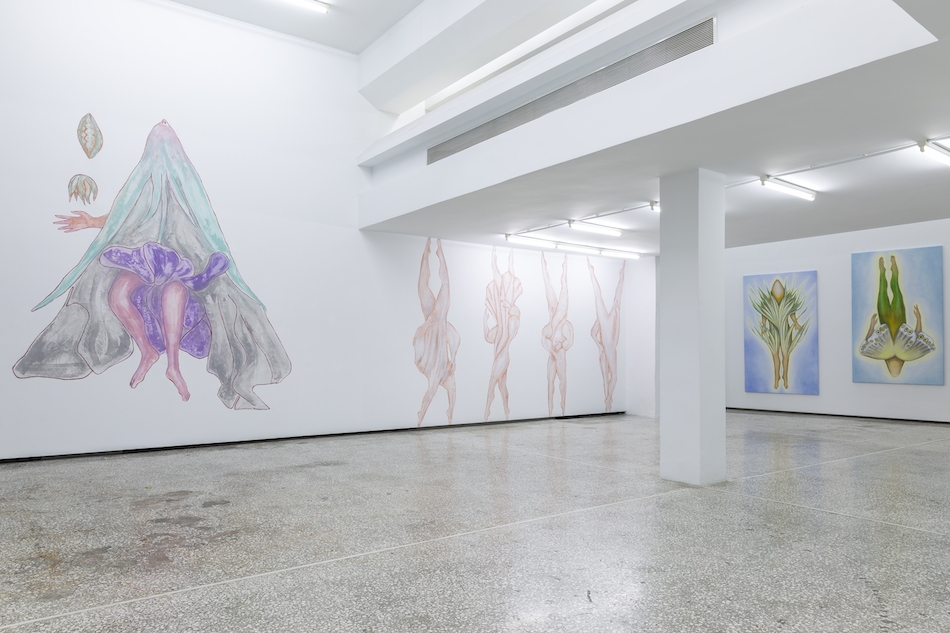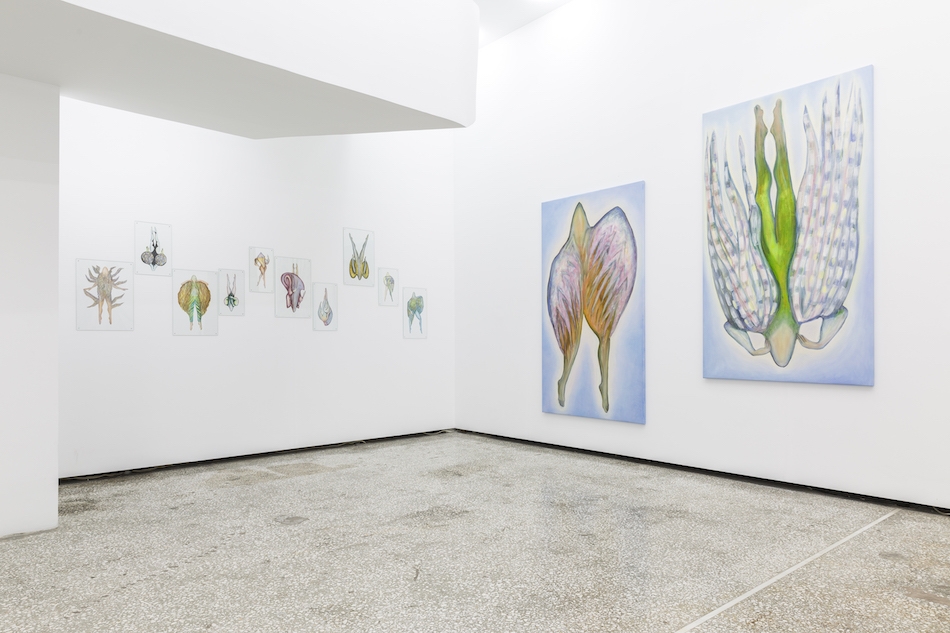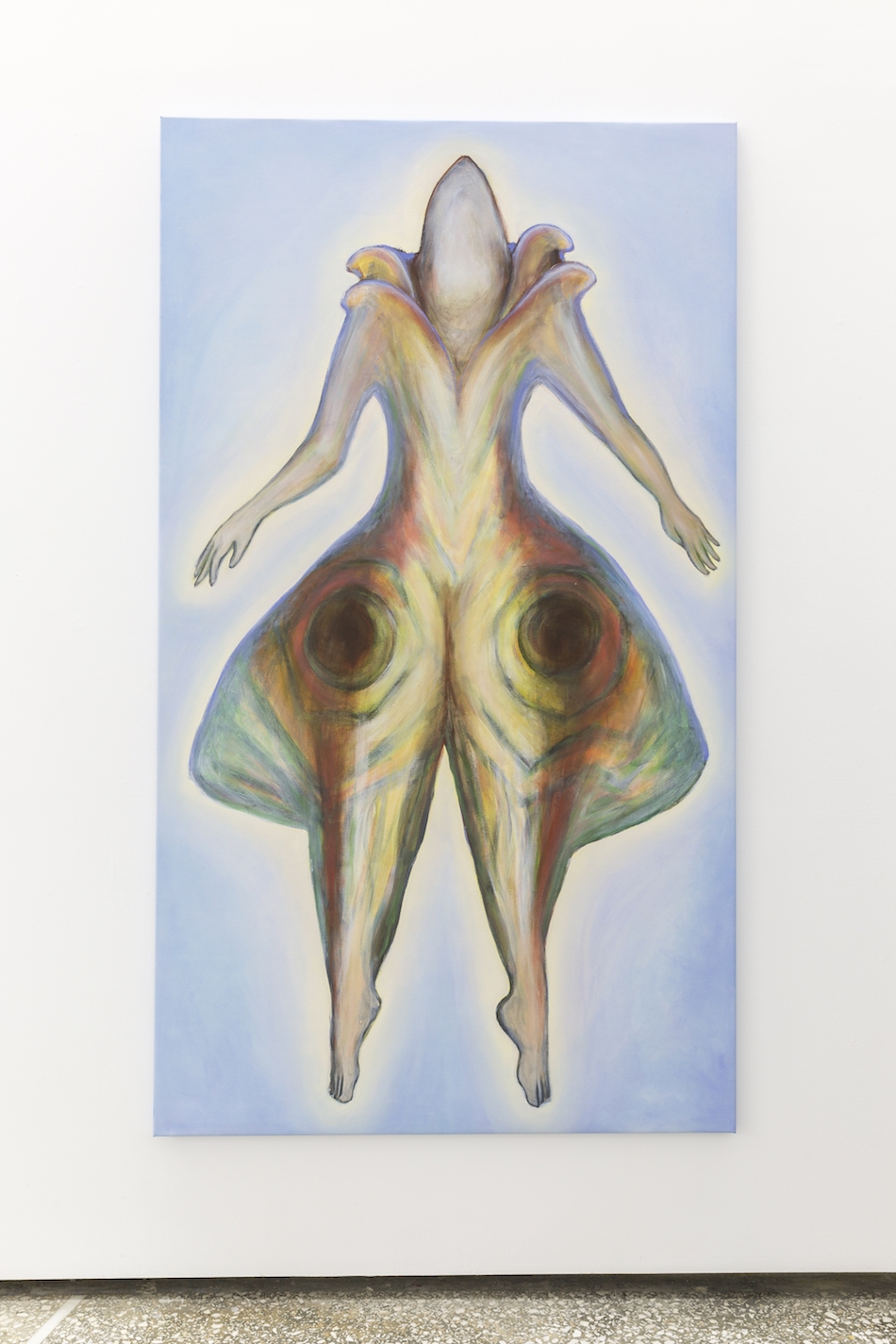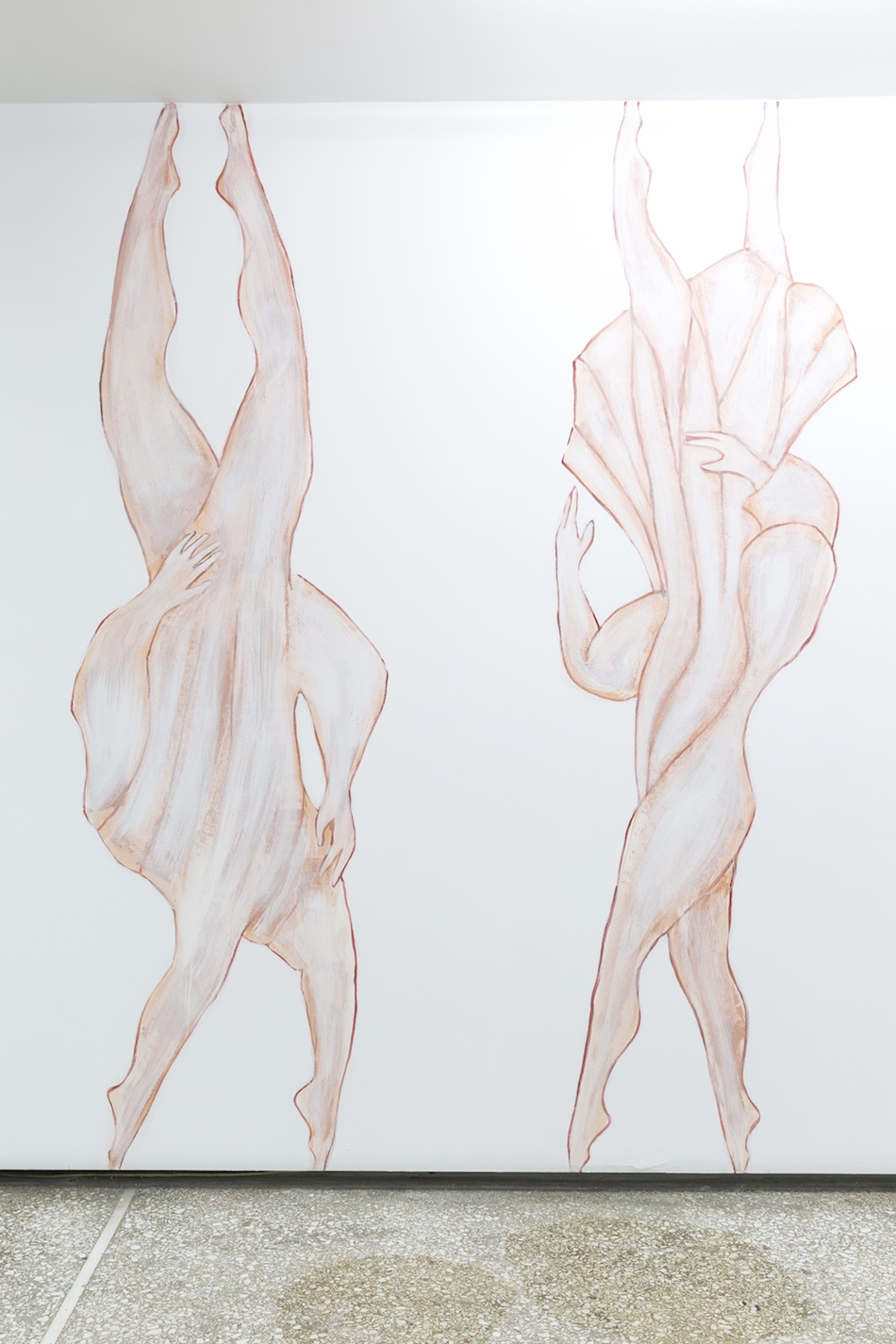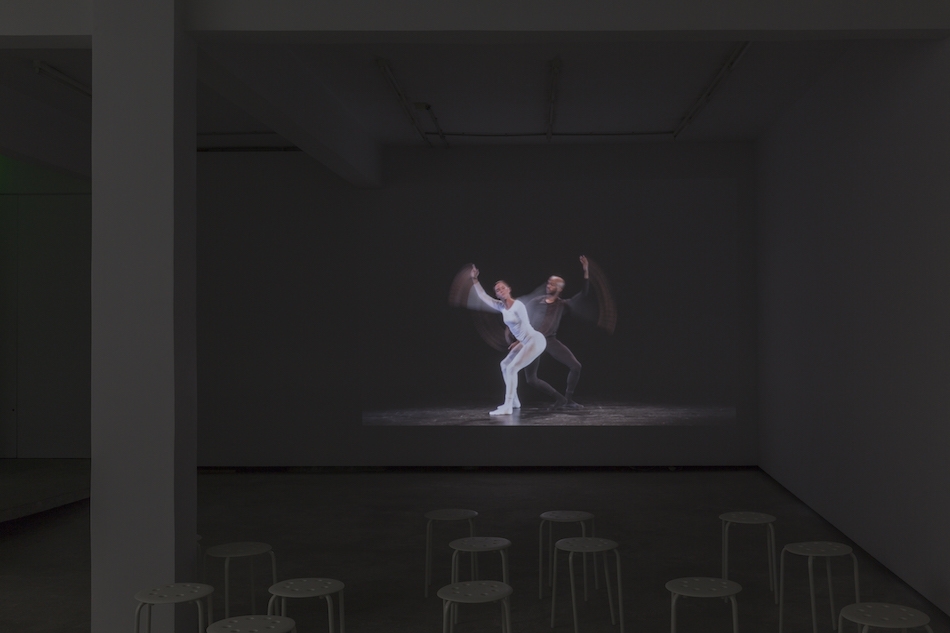Mathilde Rosier
Thinking Like Another Earthy Life Form
September 18, 2018–October 13, 2018The Breeder, Athens
“Where is intelligence? A new thinking is flourishing at the crossroad of poetry, science and philosophy, questioning the conventional conception we have of intelligence as being located and contained in a human brain. First we heard that intelligence could be a faculty we share more with superior animals, than with insects, bacteria and now possibly with plants and why not also with ecosystems, like the ocean or the forest.
Couldn’t intelligence be just a flow of some kind of waves available in the water or in the air, that each species and each individual in this species would intercept at a certain level and in a certain way according to what needs to be done? Could we, in opposition to the anthropocentrism of the past generations, start to think like an animal, an insect, a bacterium, a tree, an ocean, a forest?
Like the ancient Egyptians, we contemplate the idea of becoming in thoughts, a caterpillar in a chrysalis, being offered a second life after death if tightly wrapped. Indeed, to start thinking like anything else than a human individual seems a way out of our essential fear, our fear of death. What we learn first from the rest of the life forms on earth is that death is not a problem. There is here a huge hope to solve the most problematic discomfort we endure in our conditioning as human individuals.
But be careful, there is a huge challenge before us if we want to think like any other form of life than a human one. We have to learn to think out of the alphabet.
When visiting a touristic or cultural site, one is offered an audio guide, which in many cases is surprisingly merely an audio transcription of what we look at. As if we were all blind, our senses incapable to bring the information to our intelligence without the support of the literary translation. We look but we do not see.
We have to learn to trust our senses if we want to learn to think like a non-human. We have to learn to stop the overflow of alphabet if we want to access the inter-species intelligence, which is probably all the time available around us. We have to tune in.
Representations of the human body remind us of our own physical presence and we tend to identify or project ourselves on this mirroring surface. Human forms as sprouts, impersonal, free from the burden of an identity, just being, passed through by a vital energy, a flow, an intelligene, an impulse to live all together.
Thinking like the tree, the bee, the ocean? Interdependent, interconnected, telepathic and empathic. Could we unexpectedly learn ethics from those other life forms that we always thought were inferior to ours? But an ethic in the sense of Spinoza or Nietzsche, which aims to strengthen the vital power in us and the true joy. The true joy that leads us to a relation to the world, which is not only utilitarian.”
-Mathilde Rosier 2018
Mathilde Rosier (b. 1973 Paris) lives and works in Bourgogne, France. She has graduated from École Nationale Supérieure des Beaux Arts in Paris and the Rijksakademie van Beeldende Kunsten, Amsterdam. Rosier teaches at the Institut Kunst, FHNW, Basel. Recent exhibitions and performances have been shown at: Fondazione Guido Ludovico Luzzatto, Milan (2018); Castello di Rivoli, Turin (2018); Galleria Raffaela Cortese, Milan (2018); Si Sedes Non Is, The Breder, Athens (2017); Der Tank Institut Kunst, Basel (2016); Razem Pamoja Foundation, Krakow (2015); Fiorucci Art Trust, Stromboli (2015); Galleria d’Arte Moderna, Milan (2014); Kunstverein Dortmund (2012); kestnergesellschaft Hannover (2012); Kunstpalais, Erlangen (2011); Camden Arts Centre London (2011); Museum Abteiberg, Mönchengladbach (2010); Galerie Nationale du Jeu de Paume, Paris (2010); Serpentine Gallery, London (2009).
